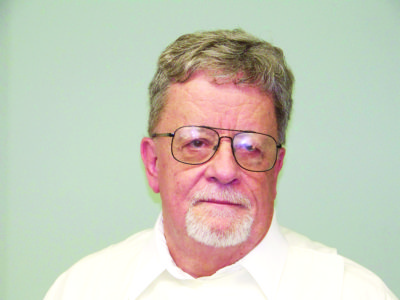Millennial Reflections

Father Jeremy Tobin
By Father Jeremy Tobin, O.Praem.
We have just passed the summer solstice, the longest day of the year, the first official day of summer and the woods are bursting with life. Green is everywhere, even in church. We are back in Ordinary Time, when the color, like the region, is green. Spring and Summer I savor precisely because they radiate hope and life.
I begin with this because there is so much negativity and division – many people are frustrated even mildly depressed. Our religion is ideally suited to combat feelings of negativity, frustration and depression. We just completed the Easter Season and celebrated Jesus overcoming death with resurrection and his promise that he will return. He said each and every one of us will do what he did: die and rise in glory. Despite what we celebrate, whether good times or bad, there is an ingrained optimism in our everyday faith to lift us up, to call us to greater possibilities.
Ordinary Time is when we go through the entire Scripture and reflect on the power and healing word of God. Now we are reflecting on prophets. For example, from the 12th Sunday to the 15th Sunday in our current cycle we hear from Jeremiah, Elisha, Zechariah and Isaiah. We are asked to reflect on prophets and prophecy. In the New Testament we have many references to prophets, those called to witness, to give testimony to the goodness and power of God.
Prophets are called by God. People do not choose to be a prophet. The role is thrust upon them. It is not a prestigious vocation. Prophets are, deliberately or not, misunderstood. They are opposed, reviled and killed. The Bible is filled with the excuses of the great prophets, things like, “I’m too young” (Jeremiah) “I can’t talk right” (Isaiah) “I have a speech impediment” (Moses). God chooses the inept, the handicapped, the poor and the weak to proclaim his good news.
Nobody wants to be a prophet. A prophet is a sign, a sacrament, if you will, of the active power of God confronting evil situations. They do what they are called to do. Often they do not see the success or goal that they strive for.
This leads me to reflect on signs, symbols, sacraments and I add mysteries. In Latin and Greek the words are interchangeable.
Much of what I say here is based on my study (years ago) of that great Dominican theologian, Edward Schillebeeckx. To keep it simple, he says that a sacrament is an encounter with God. This encounter is both intellectual and emotional. It is God communicating with our humanity and our awareness and responses to that. He goes on to say that Jesus Christ is the perfect sacrament of the encounter with God in both his completely human and divine natures. His disciples experienced all that in being with him, sharing with him, eating with him and witnessing his mighty deeds.
His signs always punctuated and validated what he said. It is through Christ that we encounter God and it is through the sacraments we encounter Christ and in Christ we encounter God. The various signs of the seven sacraments: water, oil, bread and wine and the words and gestures accompanying them are signs of Christ’s active presence in healing, restoring, nourishing and strengthening us. They are Christ present doing specific things. We all encounter Christ in all seven sacraments.
I want to emphasize encounter. What Schillebeeckx and others are trying to say is that in the sacraments there is an encounter, a meeting, a connecting with God and the recipient. These seven are not the only way we encounter or commune with God. We can also have this experience in prayer, in quiet meditation, in being aware of God’s presence in life experiences, in other people or their situation, or what they do.
It is more than intellectual, it is spiritual, emotional – the energy that drives poets and musicians. To say I had a deep encounter with Jesus in prayer and then try and express that is analogous to our connecting with God in the seven sacraments. We are accustomed to hear that “The sacrament(s) work whether you are as focused as you should be or not.” That includes the minister whether deacon or priest. This sense that they are “automatic” adds to the apathy and minimum participation on the part of the recipient.
One has to be schooled in the meaning of sacramental signs to recognize that they are ways that God encounters us. A sacramental way of seeing God is seeing him in many things, even peoples actions. A sacrament is a way we encounter the invisible in the visible. Our prayers say things like, “Now we encounter you in signs but then we will see you face to face, as you are.”
(Father Jeremy Tobin, O.Praem, is the sacramental minister for Jackson Christ the King Parish. He lives at the Priory of St. Moses the Black, Jackson.)
